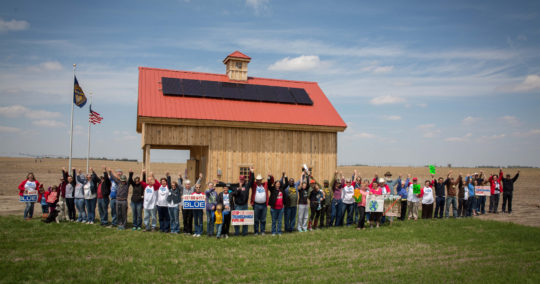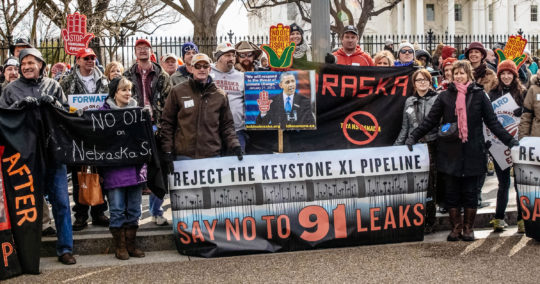

This guest post was authored by Nebraska State Sen. Adam Morfeld. (When folks head to the polls in November, in order to ensure the outdated death penalty is not part of our justice system, you need to “Vote RETAIN” to keep the law that bans the unjust death penalty that was passed by our bi-partisan Unicameral. —Jane Kleeb)
“Retaining the Good Life”
by Adam Morfeld
In Spring of 2015, after decades of debate and study, I, and a bi-partisan majority of my colleagues, carefully decided our death penalty was too flawed to fix. Abolishing the death penalty was one of my proudest moments in the Unicameral. 16 Republicans, 13 Democrats, and 1 Independent voted to replace the death penalty in Nebraska with life in prison without parole. Here are some of the reasons we decided life without parole is in line with our Good Life values.
The death penalty risks executing the innocent.
Since 1973, more than 155 individuals in the US have been wrongfully sentenced to death and later exonerated. More than 300 others, including six in Nebraska, have been exonerated from long prison sentences. The Beatrice 6 shows us innocent people can plea to crimes they didn’t commit if threatened with the death penalty. DNA is no silver bullet – it’s only available in about 15% of murder cases. People make mistakes, with the death penalty on the books we risk making the ultimate mistake. It is a mistake that cannot be reversed on appeal or by a pardon. It is final.
The death penalty harms murder victims’ families.
Capital cases prolong the legal process, keeping the victims’ families in legal limbo for years. All the while, the offender is kept in the limelight and victims’ families may be without critical resources. A single capital case costs millions, which can divert resources away from counseling and support services addressing the many needs faced by all victims’ families. In 2012, Nebraska was ranked last in the nation for funding victims’ services.
The death penalty is far more expensive than life imprisonment.
The death penalty is consistently more expensive than life in prison without parole because of the additional preparation in capital cases, the separate sentencing phase, post-conviction appeals mandated by the Supreme Court, and the added costs of death row. For example, Richardson County nearly went bankrupt and had to borrow money against its ambulances in order to pay for two capital cases.
The death penalty is unfairly applied.
Who gets life and who gets death in Nebraska in death penalty cases depends more on geography, class, race, and the discretion of prosecutors than on the heinousness of the crime. Capital punishment means those without capital get the punishment.
The death penalty just isn’t functional in Nebraska.
Despite years of tinkering with the system, we don’t have a system we can trust or that functions properly. Nebraska hasn’t had an execution in nearly 20 years. Even Nebraskans who theoretically support the punishment don’t want to invest any more time or money on this failed program.
This historic victory in the Legislature aside, Nebraskans will vote in Nebraska whether to retain Legislative Bill 268 (the bill that abolished the death penalty) or repeal the work of legislature and bring back a failed government program. The state must lead by example, and not be in the business of killing people. Join me in working to retain “The Good Life” and keep the death penalty out of Nebraska.



